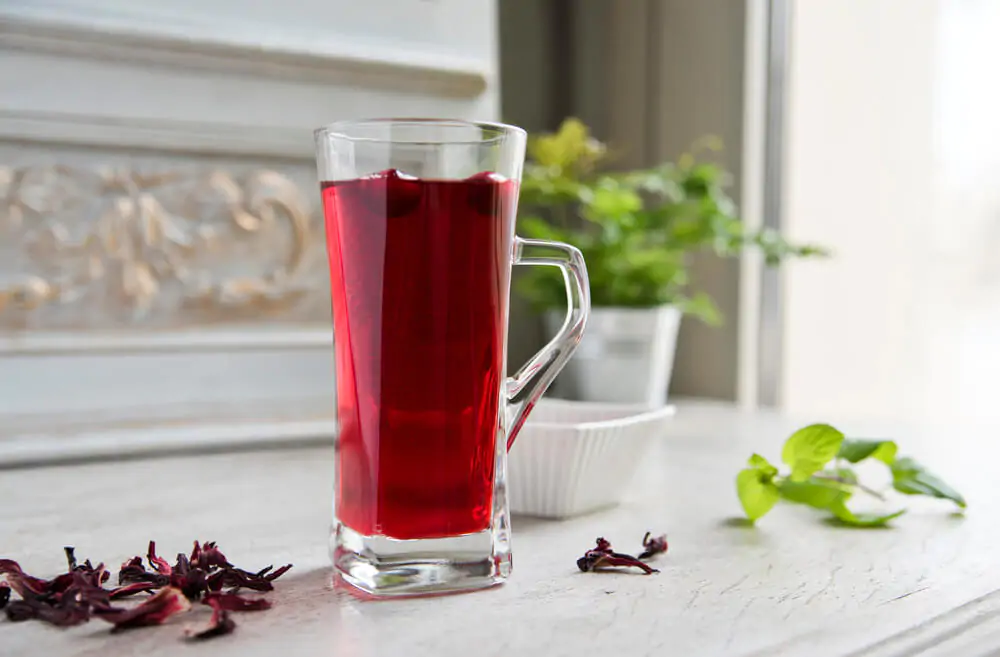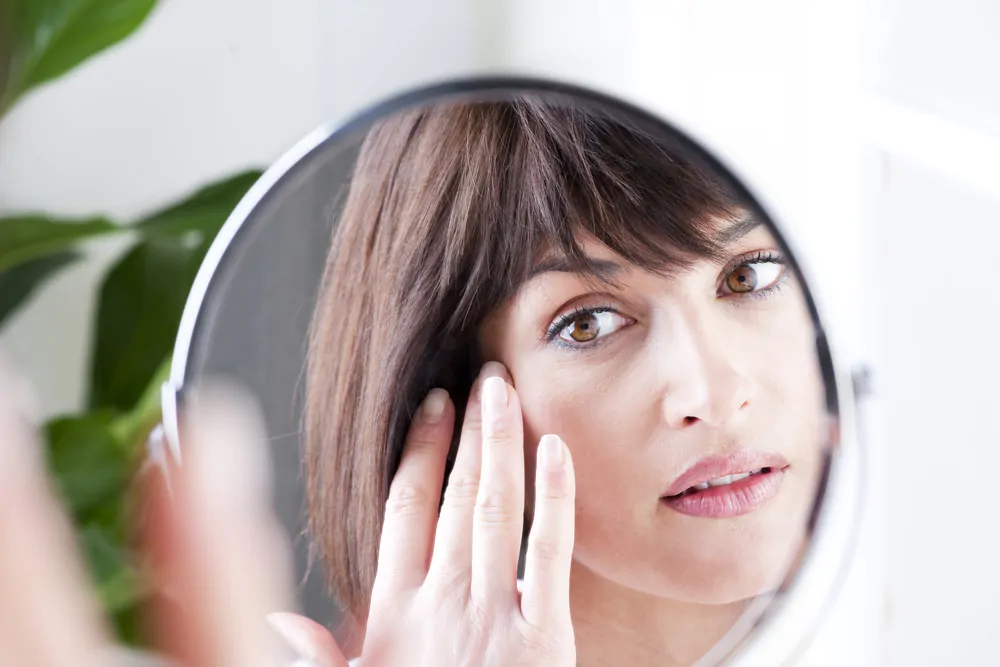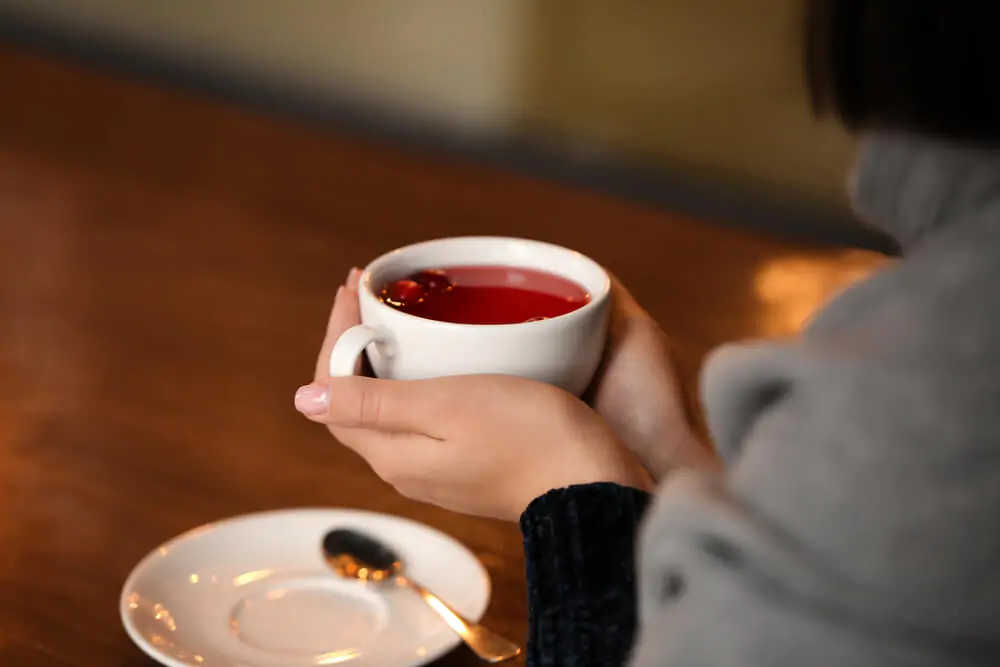A beautiful cup of hibiscus tea comes with a range of astringent, sweet, sour, and tangy notes that make your taste buds jump for joy. But what is hibiscus tea good for?

When the heat of the summer months kicks in, having a glass of iced hibiscus tea heals my soul. When I first tried this herbal tea, its sourness raised my eyebrows, but I realized I had brewed it completely wrong.
The following day, I finally learned how to make a perfect tea using the right amount of dried hibiscus and honey. And after two years of drinking hibiscus tea, it has given me flawless skin, relieved my anxiety, helped with my dad’s liver health, and reduced black spots and wrinkles on my mother’s face.
Keep on reading to learn more about what hibiscus tea is good for and how to brew it. If you like hibiscus tea, you might also be interested in learning about Kashmiri tea.
What Is Hibiscus Tea?
Made from the Hibiscus sabdariffa flower, native to Africa, hibiscus tea is a popular herbal tea, usually sold dried or in a teabag. This exotic flower can be found in tropical regions outside Africa, including Central and South America, East Asia, and the Caribbean.

Hibiscus has been taking the world by storm for the past few years as one of the most healthy herbal teas. Hibiscus tea is also used in traditional cuisine and healing practices.
You might also find our guide on red rose tea helpful.
What Does Hibiscus Tea Taste Like?
You can recognize hibiscus tea immediately by its stunning red color. Most people do not like hibiscus tea by itself due to its sour taste. Add a few drops of honey, maple syrup, or sugar to balance out the bitterness.
6 Benefits Of Hibiscus Tea
1. Control Blood Pressure
One of the significant benefits of hibiscus tea is targeting high blood pressure. Daily consumption of hibiscus tea can reduce both systolic and diastolic blood pressure.
2. Relieve Stress & Anxiety
The vitamins and minerals found in hibiscus tea, especially flavonoids, can have anti-depression properties that balance the nervous system and promote relaxation.
3. Reduce Signs Of Premature Aging

Free radicals usually cause premature aging. Hibiscus tea has anti-inflammatory and antibacterial compounds. These agents are accountable for producing antioxidant enzymes that fight against free radicals in the body.
You may also be interested in learning about Ballerina tea.
4. Good For The Immune System
The high concentration of vitamin C in this tea can boost the immune system. Consuming enough vitamin C can help improve wound healing, bone health, and cartilage.
5. Speed Up Weight Loss
Drinking hibiscus tea alone doesn’t make your pounds drop significantly in a day or two, but the metabolism regulation properties can prevent obesity. However, you should combine hibiscus tea with an exercise routine and a good diet.
6. Promote Liver Health
Hibiscus tea can increase the number of detoxifying enzymes, which can help prevent liver damage.
Hibiscus Tea Potential Side Effects
People with low blood pressure shouldn’t drink hibiscus tea daily since the antihypertensive properties in the tea may make it worse.
If you are pregnant or breastfeeding, you should avoid this herbal tea for the time being. Its emmenagogue effects are likely to activate menstruation and blood flow in the uterus or pelvic region.
Allergic reactions are not common, stop drinking the tea and consult your doctor you have itchy sinus, or fever symptoms.
What Is The Best Time To Drink Hibiscus Tea?

There’s no exact answer to this question. Since hibiscus tea is caffeine-free, you can drink it anytime in the day or even before bedtime.
How To Make Hibiscus Tea
- Fill the teapot with hot water
- Put five grams of dried hibiscus tea into the pot
- Steep the tea in hot water for a minimum of five minutes until you see a deep red infusion
- Add one teaspoon of organic honey into the cup
Nothing sounds better than an icy, sweet, sour hibiscus tea during the summer months. You only need to wait until the hot tea cools down and add ice to make the cold version.

